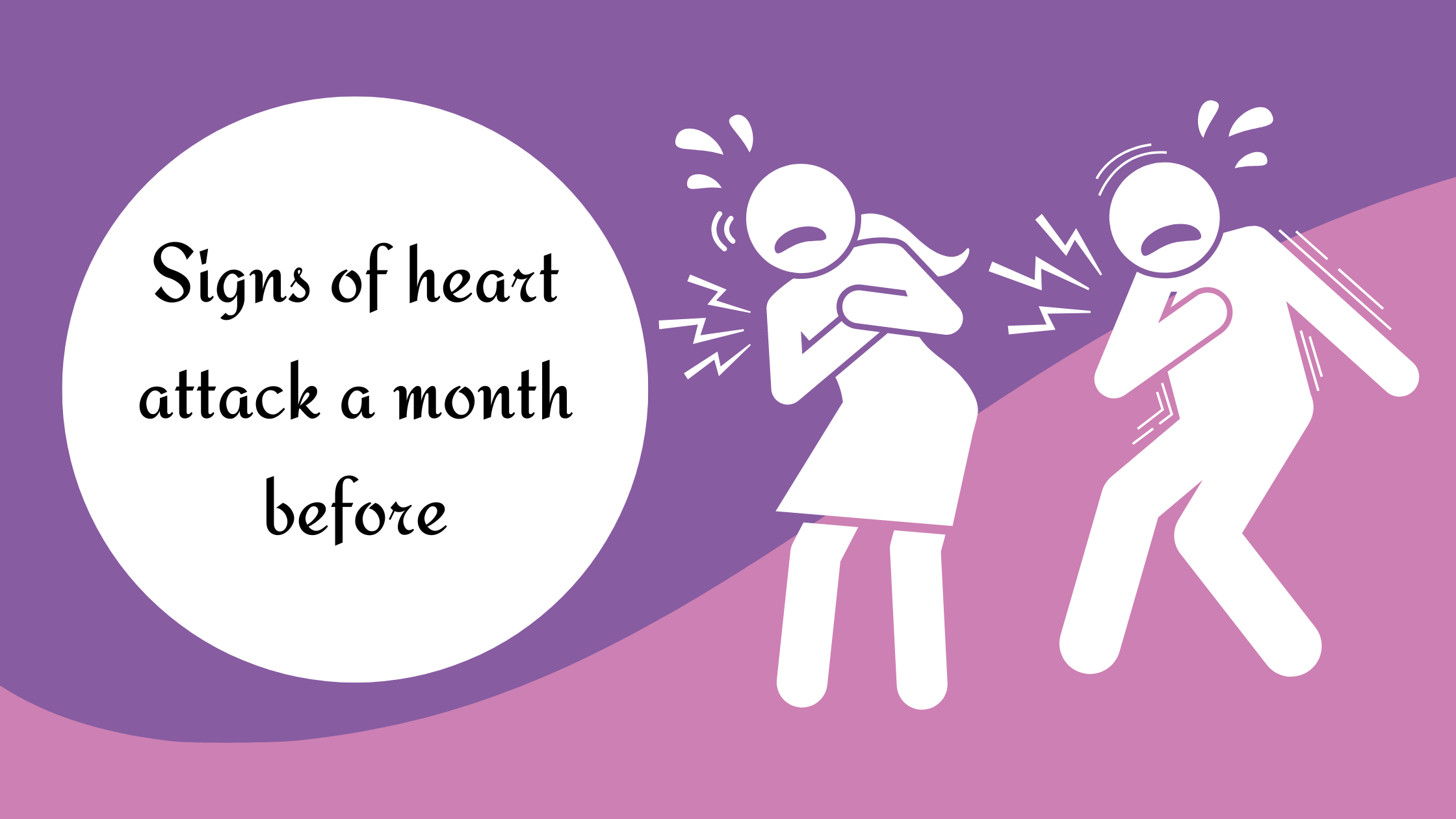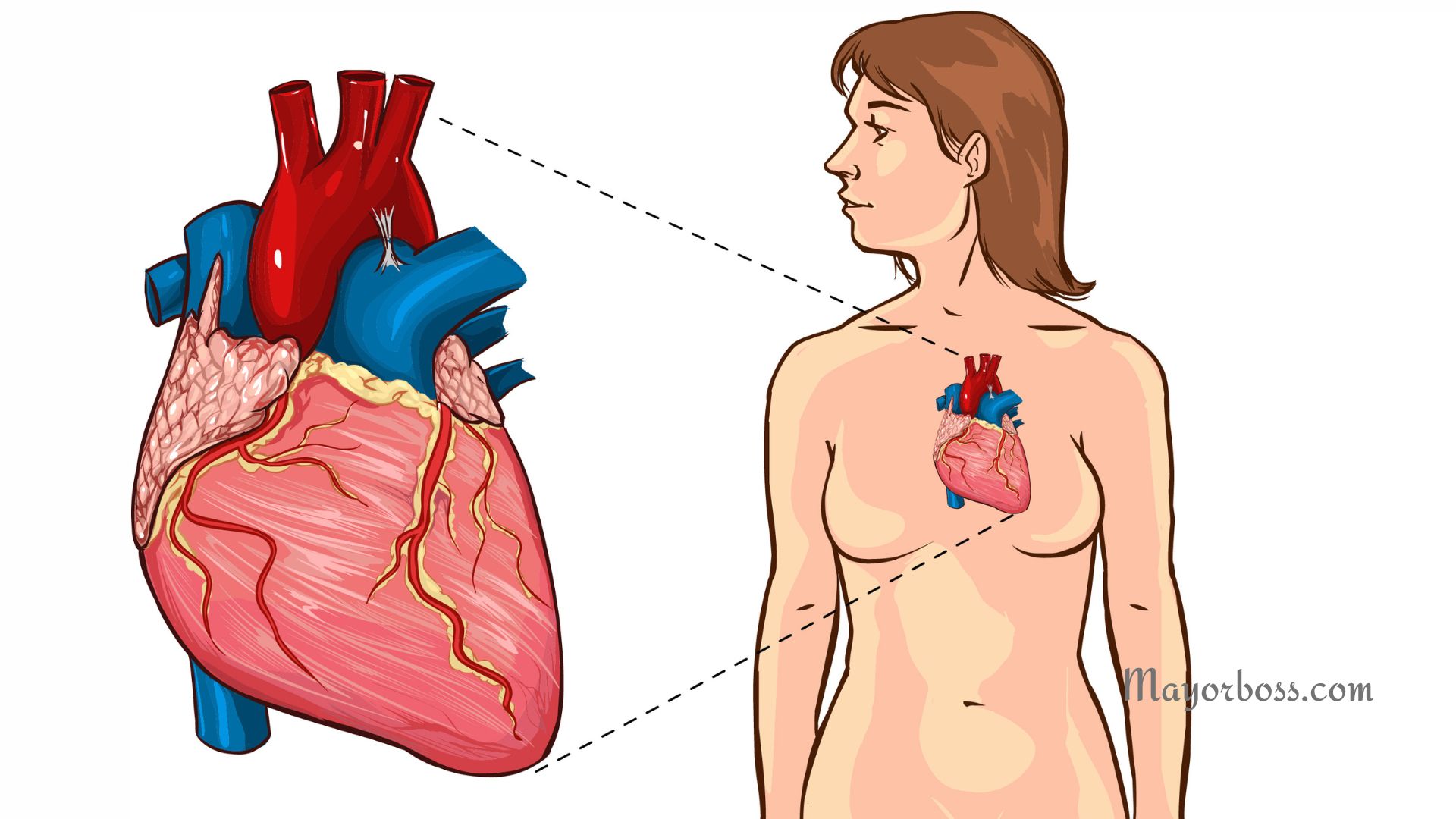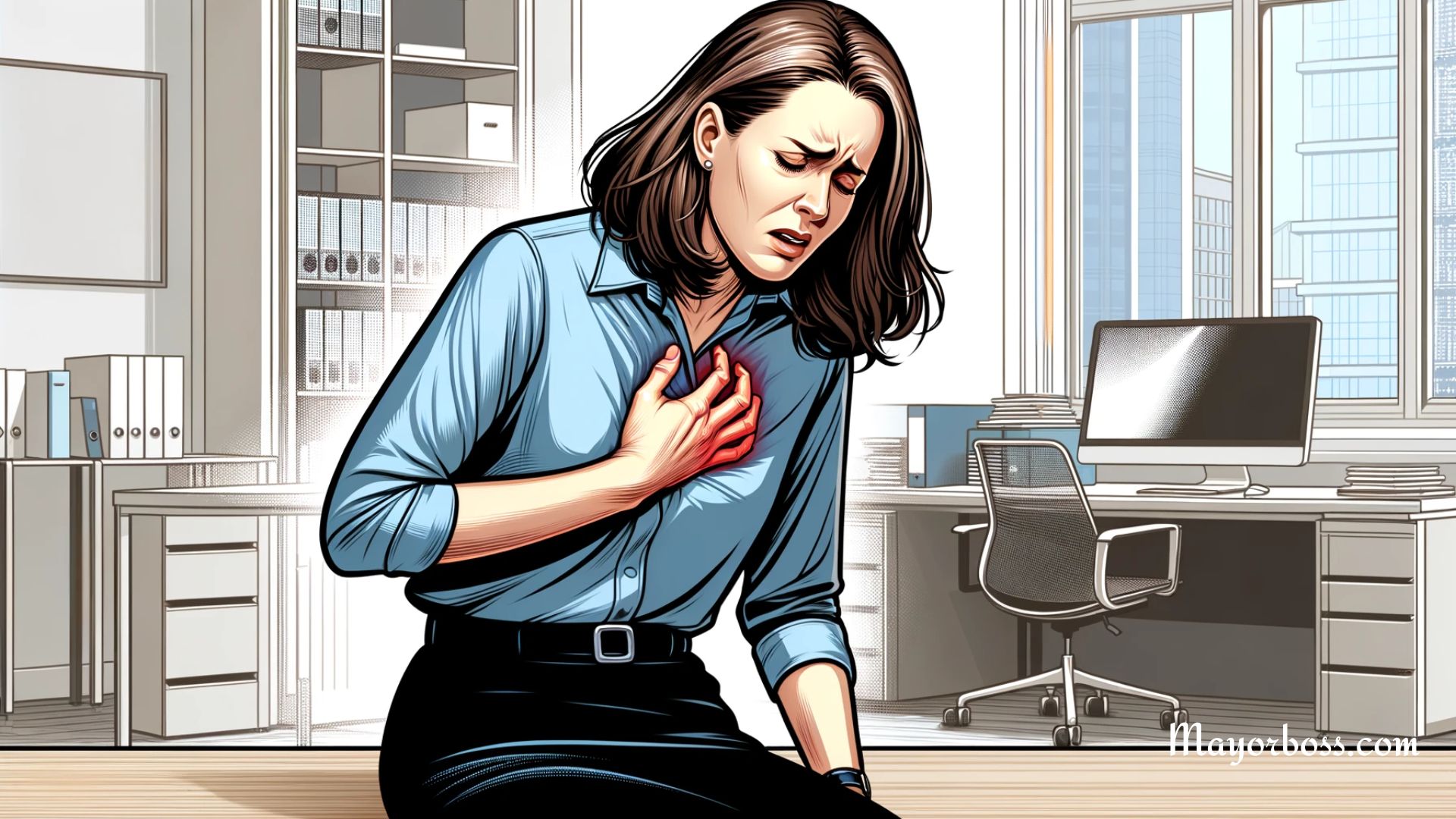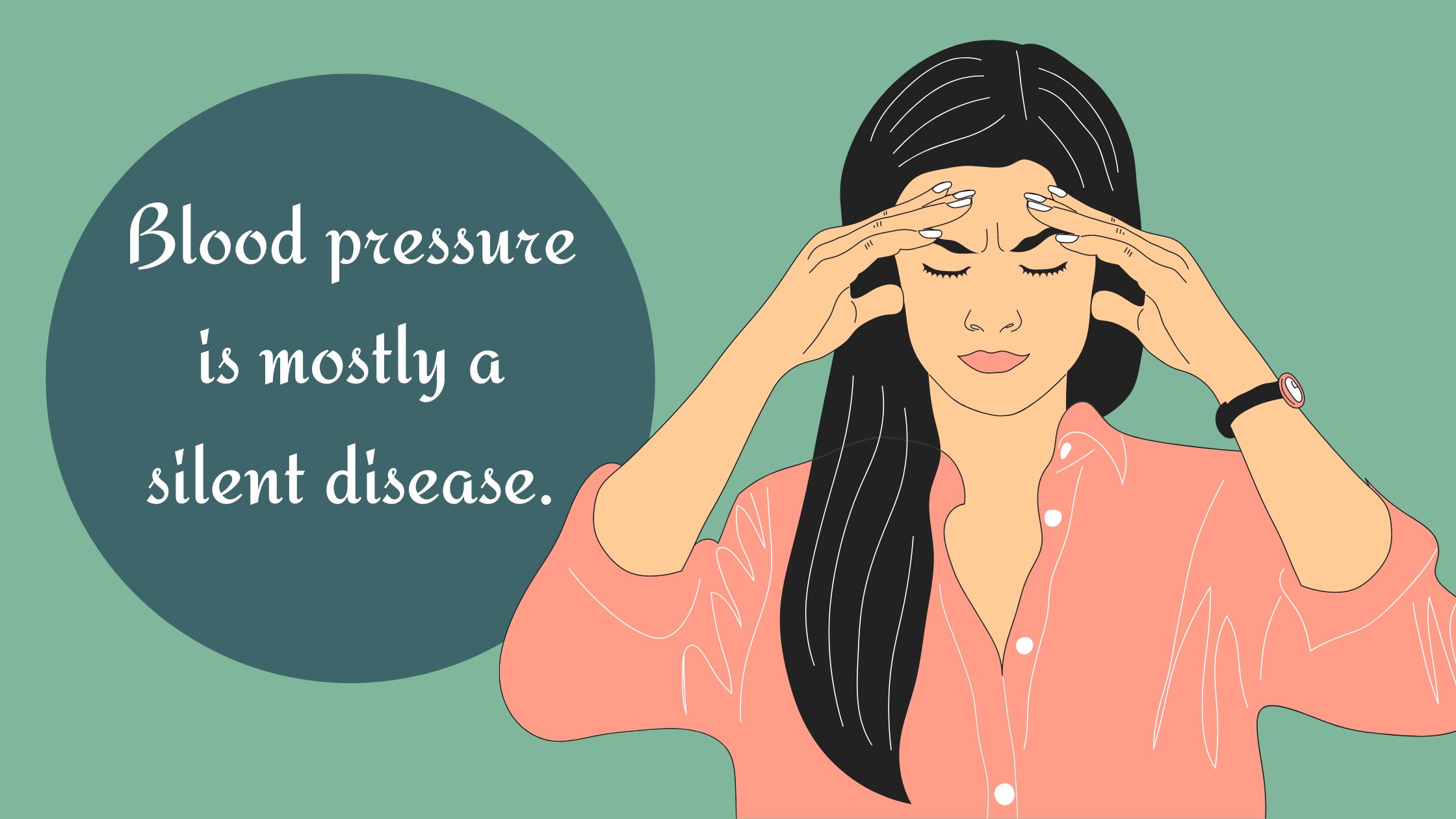What Is Hypertension?
Hypertension, commonly known as high blood pressure, is a widespread health concern affecting millions of people worldwide. This silent yet potentially dangerous condition can lead to severe health complications if left unchecked.
In this article, I will tell you about hypertension, its causes, symptoms, and available treatment options.
What Is Hypertension?
To put it simply, hypertension happens when the force of blood against the walls of the arteries is consistently too high.
In general, blood pressure is measured in two numbers: systolic pressure (top number) and diastolic pressure (bottom number).
A normal blood pressure reading is typically around 120/80 mm Hg, while hypertension is diagnosed when blood pressure consistently measures 140/90 mm Hg or higher.
Causes of Hypertension
There are two main types of hypertension: primary and secondary. Primary hypertension, also known as essential hypertension, develops gradually over time with no identifiable cause.
Factors contributing to primary hypertension include genetics, age, diet, and lifestyle choices.
Secondary hypertension, on the other hand, results from an underlying condition such as kidney disease, hormonal disorders, or the use of certain medications.
In some cases, secondary hypertension can happen during pregnancy. Identifying and treating the root cause can help control secondary hypertension.
Hypertension Symptoms
Although hypertension is often asymptomatic, some individuals may experience subtle signs or symptoms that can indicate elevated blood pressure.
It’s important to remember that these symptoms are not exclusive to hypertension and can be associated with various other health issues. Some potential symptoms of high blood pressure include:
- Headaches: Some people with hypertension may experience headaches, particularly in the morning or during periods of high stress. These headaches can range from mild to severe.
- Dizziness: Elevated blood pressure may cause episodes of dizziness or lightheadedness, which can lead to loss of balance or even fainting.
- Fatigue: Hypertension can result in a general feeling of tiredness or exhaustion, even without engaging in physically demanding activities.
- Nosebleeds: Although uncommon, some individuals with high blood pressure may experience nosebleeds due to the increased pressure on blood vessels in the nasal cavity.
- Blurred vision: High blood pressure can affect the blood vessels in the eyes, leading to vision problems such as blurring or double vision.
- Chest pain: Hypertension can cause discomfort or pain in the chest, which may be mistaken for heartburn or indigestion.
- Irregular heartbeat: High blood pressure can contribute to an irregular heartbeat or arrhythmia, causing palpitations or the sensation of a racing heart.
- Shortness of breath: In some cases, hypertension may cause difficulty in breathing or shortness of breath, particularly during physical exertion.
If you experience any of these symptoms, it’s essential to consult with a healthcare professional for a thorough evaluation. Although they may not be directly caused by hypertension, it’s crucial to identify and address any underlying health issues contributing to these symptoms.
Regular blood pressure monitoring is vital in detecting and managing hypertension, as many people with high blood pressure may not experience noticeable symptoms.
Causes and Risk Factors of Hypertension
While the exact cause of primary hypertension remains unknown, several factors contribute to the development of this condition. Risk factors can be divided into modifiable and non-modifiable categories.
Non-modifiable Risk Factors
These are factors that cannot be changed but may increase the likelihood of developing hypertension:
- Age: The risk of hypertension increases as you age. Blood vessels lose elasticity over time, which can contribute to elevated blood pressure.
- Genetics: A family history of hypertension increases your likelihood of developing the condition. Certain genetic factors predispose individuals to high blood pressure.
- Race: Studies have shown that individuals of African or African-American descent are at a higher risk of developing hypertension compared to other racial groups. The reasons for this disparity are not fully understood but may be linked to genetic factors, socioeconomic status, and access to healthcare.
Modifiable Risk Factors
These factors can be altered through lifestyle changes, potentially reducing the risk of hypertension:
- Diet: Consuming a diet high in sodium, unhealthy fats, and processed foods can contribute to high blood pressure. A balanced diet of fruits, vegetables, whole grains, and lean proteins can help regulate blood pressure.
- Obesity: Excess body weight puts additional strain on the heart, increasing the risk of hypertension. Maintaining a healthy weight through diet and exercise can help prevent high blood pressure.
- Physical inactivity: A sedentary lifestyle is associated with a higher risk of hypertension. Regular physical activity can help lower blood pressure and improve overall cardiovascular health.
- Alcohol consumption: Excessive alcohol intake can raise blood pressure levels. Limiting alcohol consumption to moderate levels can help control blood pressure.
- Tobacco use: Smoking and using tobacco products can damage blood vessels and cause a temporary increase in blood pressure. Quitting tobacco can significantly reduce the risk of hypertension and other cardiovascular diseases.
- Stress: Chronic stress can result in high blood pressure by causing the body to release stress hormones that narrow blood vessels. Identifying and managing stress through relaxation techniques, exercise, and counseling can help lower blood pressure.
- Sleep apnea: This sleep disorder, characterized by interrupted breathing during sleep, can lead to elevated blood pressure. Treating sleep apnea using methods such as continuous positive airway pressure (CPAP) therapy can help manage hypertension.
- Chronic kidney disease: Impaired kidney function can lead to an imbalance of sodium and fluid in the body, resulting in increased blood pressure. Proper management of kidney disease can help control hypertension.
- Diabetes: High blood sugar levels can damage blood vessels and nerves, increasing the risk of hypertension. Effective diabetes management through medications, diet, and exercise can help lower blood pressure.
Understanding and addressing the risk factors associated with hypertension can significantly reduce your chances of developing this condition.
What happens if hypertension is left untreated?
Untreated hypertension can lead to severe health complications, including:
- Heart attack and stroke
- Kidney damage
- Vision loss
- Sexual dysfunction
- Memory and cognitive problems
Diagnosis and Treatment
A healthcare professional will diagnose hypertension based on multiple blood pressure readings taken on different occasions. Once diagnosed, a combination of lifestyle modifications and medications may be prescribed.
Lifestyle Changes
Adopting healthier habits can help lower blood pressure and reduce the risk of complications. Some suggested lifestyle changes include:
- Eating a balanced diet rich in fruits, vegetables, and whole grains
- Reducing sodium intake
- Exercising regularly
- Maintaining a healthy weight
- Limiting alcohol consumption
- Managing stress
Also read: Foods That Can Lower Your Blood Pressure
Medications
Several classes of medications are available to treat hypertension, such as:
- Diuretics
- Beta-blockers
- ACE inhibitors
- Calcium channel blockers
- Angiotensin II receptor blockers (ARBs)
Your healthcare provider will determine the most appropriate medication based on your specific circumstances and overall health.
Also See: 7 Herbs For High Blood Pressure
Conclusion
Hypertension is a serious health concern that can lead to severe complications if left unmanaged. By understanding its causes, recognizing the risks, and seeking appropriate treatment, you can take steps to control your blood pressure and maintain a healthier lifestyle.
Regular check-ups and monitoring are essential in the prevention and management of hypertension.
Also read: 9 Natural Ways to Lower Blood Pressure






